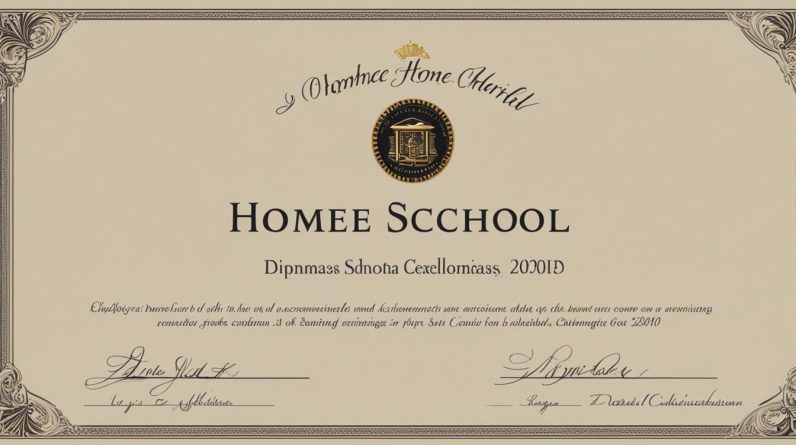Welcome to our comprehensive guide on home schooling in Pennsylvania! If you’re a parent exploring the option of homeschooling in the Keystone State, you’ve come to the right place. Despite the state’s strict regulations, homeschooling can be a rewarding and successful educational choice for your child. In this guide, we’ll provide you with essential information and practical tips to navigate the home schooling journey in Pennsylvania.
Key Takeaways:
- Understand Pennsylvania’s homeschooling laws, which allow parents to teach their children at home.
- Familiarize yourself with the process of filing the required affidavit and educational objectives.
- Notarize and submit the necessary documents to the superintendent’s office.
- Keep a log of activities and meeting the homeschooling hours requirement.
- Create a year-end portfolio and schedule an evaluation with a state-certified evaluator.
Understanding Pennsylvania’s Homeschooling Laws
When it comes to homeschooling in Pennsylvania, it’s crucial to understand the state’s homeschooling laws and regulations. Pennsylvania’s homeschooling laws, also known as Act 169, provide guidelines and requirements for parents who choose to educate their children at home.
The main aim of these laws is to ensure that children between the ages of eight and seventeen receive an adequate education. One way to fulfill this requirement is through homeschooling, which offers two options: being a qualified private tutor or conducting a home education program.
Let’s take a closer look at these options and their specific requirements:
Qualified Private Tutor
As a qualified private tutor, you must meet certain qualifications and responsibilities. These can include having a bachelor’s degree, being knowledgeable in the subjects you’ll be teaching, and providing a specific number of hours of instruction. It’s essential to research and understand the qualifications required to serve as a private tutor in Pennsylvania.
Home Education Program
A home education program allows parents to take the lead in educating their children. To establish a home education program, parents must follow specific steps, which include:
- Filing an affidavit: Parents need to submit an affidavit to the superintendent’s office in their district of residence. This affidavit serves as a formal declaration of your intention to homeschool your child.
- Outlining educational objectives: Along with the affidavit, parents must provide an outline of the educational objectives for their child’s homeschooling program. This outline should detail the subjects to be taught and the learning goals you have for your child.
By fulfilling these requirements, you can establish a legal and compliant home education program in Pennsylvania.
To gain a deeper understanding of Pennsylvania’s homeschooling laws, it’s important to consult official resources such as the Pennsylvania Department of Education. These resources can provide you with detailed information on the legal requirements and paperwork necessary to homeschool your child effectively.
Understanding and complying with Pennsylvania’s homeschooling laws is essential for a successful homeschooling journey. By following the guidelines and fulfilling the requirements, you can provide your child with a quality education in the comfort of your home.
Filing the Affidavit and Objectives
In order to begin homeschooling in Pennsylvania, you must complete two important steps: filing the homeschooling affidavit and outlining your educational objectives. This ensures compliance with the homeschooling requirements set by the Pennsylvania Department of Education.
Step 1: Filing the Homeschooling Affidavit
The homeschooling affidavit serves as an official notification to the superintendent’s office in your district of residence that you intend to homeschool your child. The affidavit must be notarized and submitted to the office to initiate your home education program. It should include the following information:
- Your name as the parent or guardian
- The names and ages of the children participating in the homeschool program
- The address and phone number of the home education program site
Additionally, the affidavit should state that the required subjects, such as English, Math, Science, and Social Studies, will be taught. It is essential to be thorough and accurate when completing the affidavit to ensure compliance with Pennsylvania homeschooling laws.
Step 2: Outlining Homeschool Objectives
Along with the affidavit, you will need to provide an outline of your proposed educational objectives. This outlines your intended educational plans and goals for your child’s homeschooling journey. The objectives should align with the mandatory subjects and be specific to your child’s grade level. You can utilize the template provided by the Pennsylvania Department of Education or create your own objectives list.
| Required Information for the Affidavit | Sample Educational Objectives |
|---|---|
| Parent’s name | To ensure a supportive and engaging learning environment for my child |
| Children’s names and ages | To foster a love for reading and develop strong literacy skills |
| Home education program site address and phone number | To explore and understand mathematical concepts and problem-solving strategies |
| Statement of required subjects | To provide hands-on science experiments and investigations |
Remember, if your child has previously attended a public school and has an individualized education program (IEP), their objectives may need to be approved by the district.
Once you have completed the affidavit and outlined your educational objectives, you are ready to submit them to the superintendent’s office in your district of residence. This is an important milestone in beginning your homeschooling journey. Keep copies of all submitted documents for your records.

Now that you have filed the affidavit and outlined your educational objectives, you are one step closer to embarking on a rewarding homeschooling experience in Pennsylvania. In the next section, we will explore the notarization and submission process for these important documents.
Notarization and Submission of Documents
Once you have completed the necessary affidavit and objectives for homeschooling in Pennsylvania, the next step is to have these documents notarized by a certified notary. The notarization process ensures the authenticity and legal validity of your submission. You can easily find notary services through a quick online search or inquire at your local bank, which may offer this service for free.
After notarization, you can proceed with submitting your documents to the district office. There are two options for submission: in person or through certified mail with return receipt requested. Both methods have their advantages, so choose the one that is most convenient for you.
If you prefer to submit your documents in person, you can visit the district office during their regular operating hours. This allows you to directly hand over your notarized documents and receive a receipt as proof of submission. Remember to bring copies of all your submitted documents to keep for your records.
If you opt for certified mail with return receipt requested, you will need to package your notarized documents securely and send them via certified mail. This method provides a tracking number and requires a signature upon delivery, ensuring that your documents reach their destination safely. The return receipt serves as proof of submission, so be sure to keep it together with your copies of the submitted documents.
Submitting your homeschooling documents in a timely manner is crucial. New homeschoolers can submit their paperwork at any time during the school year, while returning homeschoolers have until August 1 to submit their documents for the upcoming academic year.
By following the notarization and submission process outlined above, you can ensure that your homeschooling documents are properly processed and comply with Pennsylvania’s regulations.
Logging Activities and Meeting Homeschooling Hours Requirement
In order to meet the homeschooling requirements set by Pennsylvania homeschooling laws, it is essential to keep a detailed record of your child’s activities, trips, academics, and reading time. By logging these activities, you can ensure that your child fulfills the required homeschooling hours. The state of Pennsylvania mandates 900 total hours for elementary students and 990 hours for older students.
There are several ways you can keep track of these hours:
- Record the books your child reads
- Maintain a library check-out log
- Document various educational activities, such as museum visits or family vacations
Keeping an organized homeschooling log not only helps you meet the legal requirements but also provides a valuable record of your child’s progress throughout the homeschooling year. Templates and resources are available to assist you in organizing and documenting your child’s educational journey.

This image provides an example of a homeschooling log that you can use to track your child’s activities and hours.
Year-End Portfolio and Evaluation
As part of Pennsylvania homeschooling requirements, you are required to create a year-end portfolio and undergo a evaluation conducted by a state-certified evaluator. The portfolio serves as a comprehensive compilation of your child’s educational activities throughout the school year, showcasing their progress and achievements.
The homeschooling portfolio should include a variety of materials, such as artwork, writing samples, assessments, and documentation of field trips or educational events. This collection of evidence provides a holistic view of your child’s education and demonstrates their learning outcomes.
After assembling the portfolio, you will schedule a meeting with a state-certified evaluator. During this evaluation, the evaluator will review the portfolio and provide a written assessment of your child’s progress. It is an opportunity to receive valuable feedback and gain insights into their academic development.
Once the evaluation is complete, you must submit the written evaluation along with the year-end portfolio to the superintendent’s office by June 30th of each school year. This ensures compliance with Pennsylvania homeschooling requirements and proves that your child has received a thorough education.
Meeting Additional Requirements
It is important to note that different school districts may have additional requirements or forms for the portfolio and evaluation process. Therefore, it is advisable to reach out to your local district for specific guidelines and procedures.
By following these guidelines for year-end portfolio creation and evaluation, you can fulfill the Pennsylvania homeschooling requirements and showcase the educational progress of your child.

Creating and Organizing the Homeschooling Portfolio
When it comes to homeschooling, keeping organized records is essential to ensure compliance with Pennsylvania homeschooling requirements and track your child’s progress. One of the key components of maintaining homeschooling records is creating and organizing a homeschooling portfolio. This portfolio serves as a comprehensive collection of your child’s educational journey throughout the school year.
To create the homeschooling portfolio, it is recommended to use a binder with labeled tabs for different subject areas. These tabs can include English, Math, Social Studies, Science, Safety, PE/Health, Art, Music, and Fire Safety. By categorizing the subjects, you can easily locate and showcase your child’s work and achievements.
In addition to the sections dedicated to each subject, it is important to include important documents such as the affidavit and objectives, school days tracking sheet, reading log, and any other relevant records. These documents provide evidence of compliance with Pennsylvania homeschooling requirements and serve as a reference point for your child’s educational journey.
| Components of the Homeschooling Portfolio | Description |
|---|---|
| Affidavit and Objectives | Include the notarized affidavit and educational objectives submitted to the superintendent’s office. |
| School Days Tracking Sheet | Track the number of school days completed, as required by Pennsylvania homeschooling laws. |
| Reading Log | Document the books your child has read throughout the school year. |
| Samples of Work | Include a selection of your child’s best work, including assignments, projects, and assessments. |
| Field Trip Documentation | Keep records of educational field trips or events attended by your child. |
By organizing your homeschooling portfolio in this manner, you can easily retrieve and present the necessary information when required. It also allows you to reflect on your child’s progress and educational achievements throughout the school year.
Tips for Organizing the Homeschooling Portfolio:
- Regularly update the portfolio by adding recent work and removing outdated materials to maintain a current representation of your child’s progress.
- Use dividers or tabs within each subject section to further categorize and organize your child’s work.
- Include photographs or other visual representations of your child engaging in educational activities or experiments.
- Consider creating a digital portfolio in addition to the physical binder, allowing for easy access and sharing with evaluators or other interested parties.
Remember, the homeschooling portfolio acts as a reflection of your child’s educational journey and a record of their accomplishments. By creating and organizing the portfolio with care, you can demonstrate your commitment to providing a well-rounded education for your child.

Participating in Extra-Curricular Activities
Homeschooled students in Pennsylvania have the unique opportunity to engage in a variety of extra-curricular activities, enriching their educational experience beyond the traditional classroom setting. By actively involving your child in these activities, you can foster their personal growth, social skills, and talents while complying with Pennsylvania homeschooling laws.
Extra-curricular activities, also known as Section 511 activities, are offered by the local school district where you reside. They encompass a wide range of options, including sports, band, clubs, and other school-sponsored events. These activities provide homeschooled students with the chance to interact with peers, pursue their passions, and develop valuable skills.
However, it is essential to note that participation in extra-curricular activities may be subject to eligibility criteria and compliance with policies, rules, and regulations established by the governing organization. Therefore, it is crucial for homeschooling families to maintain open and proactive communication with their local school district to obtain accurate and up-to-date information on specific programs and requirements for participation.
Benefits of Participating in Extra-Curricular Activities
Engaging in extra-curricular activities can have numerous benefits for homeschooled students, including:
- Developing social skills: Interacting with peers in a structured setting can help your child develop vital social skills such as collaboration, teamwork, and conflict resolution.
- Pursuing interests and passions: Extra-curricular activities provide an avenue for your child to pursue their interests and passions, enabling them to explore and develop their talents.
- Enhancing physical and mental well-being: Sports and physical activities can contribute to your child’s physical fitness and overall well-being. Additionally, participating in clubs or organizations focused on arts, sciences, or academics can enhance their mental stimulation and personal growth.
- Building a sense of community: Engaging in extra-curricular activities allows your child to connect with like-minded individuals and build meaningful relationships within their local community.
Encouraging your homeschooled child to participate in extra-curricular activities can contribute to a well-rounded and holistic educational experience. It provides them with opportunities to explore their interests, develop important life skills, and form lasting connections.
Homeschool Diplomas and Transcripts
Homeschooling parents in Pennsylvania have the flexibility to issue their own diplomas to students who have successfully completed their home education programs. Alternatively, parents can choose to enroll their children in diploma-granting organizations that are recognized by the Pennsylvania Department of Education (PDE). Both options are equally recognized by the state, providing homeschool graduates with the necessary credentials for their future endeavors.
It is important to keep transcripts of your child’s education and coursework as documentation of their homeschooling journey. Transcripts serve as a comprehensive record of the subjects studied, grades earned, and any additional achievements or extracurricular activities. These transcripts provide a clear and concise summary of your child’s educational accomplishments, which can be valuable when applying to colleges, universities, or pursuing other educational opportunities.
Diploma-granting organizations recognized by the PDE also maintain transcripts for enrolled students, ensuring a systematic and standardized approach to documenting your child’s homeschool history. By enrolling in these organizations, you can benefit from their expertise in maintaining accurate and official transcripts that align with Pennsylvania homeschooling laws.
Here is an example of a table that showcases the subjects and grades in a homeschooled student’s transcript:
| Subject | Grade |
|---|---|
| English/Language Arts | A |
| Mathematics | B+ |
| Science | A- |
| Social Studies | A |
| Foreign Language | B |
| Physical Education | P (Pass) |
Graduation Certificates and Diplomas
In addition to transcripts, homeschooling parents can create graduation certificates and diplomas to commemorate the completion of their child’s homeschool education. These certificates can be personalized to reflect your child’s name, the completion date, and other relevant details. Including a diploma with your child’s transcripts can provide a sense of achievement and recognition for their hard work throughout their homeschooling journey.
Remember, homeschool diplomas and transcripts are important documents that can open doors to various educational and career opportunities for your child. It is crucial to maintain accurate and up-to-date records to showcase their academic achievements and meet the Pennsylvania homeschooling laws’ requirements.
Homeschooling Students with Disabilities
Homeschooling students with disabilities in Pennsylvania may have additional requirements. If a child has been identified as needing special education services, the proposed home education program must be approved by a certified special education teacher or a licensed psychologist. However, these requirements do not apply to students identified as gifted or talented. It is important for homeschooling parents of children with disabilities to understand and comply with these additional requirements to ensure their child receives the necessary support and education.
Special Education Services for Homeschooling Students
When homeschooling a student with disabilities in Pennsylvania, it is crucial to provide the necessary special education services to support their individual needs. This may include specialized instruction, therapy services, and accommodations to ensure their academic success.
| Special Education Services | Description |
|---|---|
| Individualized Education Program (IEP) | An IEP is a written plan that outlines the specific goals, accommodations, and services that a student with a disability will receive. It is developed by a team of professionals, including the parents, teachers, and other relevant specialists. |
| Therapy Services | Depending on the student’s needs, therapy services such as speech therapy, occupational therapy, or physical therapy may be recommended. These services can be provided by certified therapists or professionals. |
| Accommodations and Modifications | Accommodations and modifications are adjustments made to the curriculum, materials, or environment to ensure a student with disabilities can fully participate in the educational process. This may include modified assignments, extended time for exams, or assistive technology. |
It is important for homeschooling parents to work closely with professionals and experts to develop a customized educational plan that addresses the unique needs of their child. This collaboration will ensure that the student receives the appropriate support and resources to thrive academically and personally.
Meeting Legal Requirements
While homeschooling students with disabilities in Pennsylvania, it is essential to comply with the state’s laws and regulations regarding special education services. The proposed home education program, including the accommodations and services provided, must be approved by a certified special education teacher or a licensed psychologist.
“Home education programs for students with disabilities require the review and approval of a certified special education teacher or a licensed psychologist to ensure that the necessary support and accommodations are in place.”
– Pennsylvania Department of Education
Homeschooling parents should maintain documentation of their child’s disability, any evaluations or assessments conducted, and the approvals or recommendations from certified professionals. This documentation may be required for future evaluations or if there is any need to access additional services or supports.
Parents of students with disabilities should also stay informed about any updates or changes in Pennsylvania homeschooling laws and regulations regarding special education. This will ensure that their homeschooling program remains compliant and that their child’s educational needs are met effectively.
Overall, homeschooling students with disabilities in Pennsylvania requires careful consideration and adherence to additional requirements. By collaborating with certified special education professionals and staying informed about the state’s homeschooling laws, parents can create a supportive and inclusive learning environment that meets the unique needs of their child.
Standardized Testing and Work Permits
Homeschooled students in Pennsylvania are required to take statewide standardized tests or other authorized tests in grades 3, 5, and 8. The results of these tests should be included in the homeschooling portfolio.
Additionally, homeschooled students who wish to work may need to obtain work permits from the school district. Detailed information on work permits can be obtained from the school district’s office.
Support Groups and Resources for Homeschoolers
If you are homeschooling in Pennsylvania, you are not alone. There is a wide network of support groups and resources available to help you along your homeschooling journey. These groups provide invaluable opportunities for networking with other homeschooling families, sharing resources, and collaborating on engaging activities.
To connect with like-minded homeschoolers, consider reaching out to local homeschool contacts or searching online for homeschool support groups or homeschool cooperatives in your area. These groups often organize regular meetups, field trips, and social events where you and your children can build relationships and find support in your homeschooling endeavors.
In addition to support groups, there are organizations that offer services specifically tailored to homeschooling families. These organizations provide guidance on curriculum selection, offer educational resources, and can assist you in meeting Pennsylvania’s homeschooling requirements. While some of these services may require a fee, they can prove invaluable in helping you navigate the homeschooling landscape and ensure your child’s educational success.
Remember, homeschooling can sometimes feel like a solitary endeavor, but with the support of these groups and resources, you can find a community that understands and embraces your choice to educate your child at home.
FAQ
What are the requirements for homeschooling in Pennsylvania?
Pennsylvania’s homeschooling laws require parents to file an affidavit and provide educational objectives to the superintendent’s office in their district. They also need to notarize these documents and submit them either in person or through certified mail.
How do I fulfill the homeschooling hours requirement in Pennsylvania?
Parents are encouraged to keep a record of activities, trips, academics, and reading time that count towards their child’s required hours. The state requires 900 hours for elementary students and 990 hours for older students.
What is required for the year-end portfolio and evaluation in Pennsylvania?
Homeschooling parents in Pennsylvania need to create a portfolio showcasing their child’s educational activities and meet with a state-certified evaluator who will provide a written evaluation of their progress. The evaluation must be submitted to the superintendent’s office by June 30th each year.
How should I organize the homeschooling portfolio in Pennsylvania?
It is recommended to use a binder with labeled tabs for different subject areas, including English, Math, Social Studies, Science, Safety, PE/Health, Art, Music, and Fire Safety. Important documents, such as the affidavit and objectives, should be included.
Can homeschooled students in Pennsylvania participate in extra-curricular activities?
Yes, homeschooled students in Pennsylvania have the right to participate in extra-curricular activities offered by their local school district, such as sports, band, clubs, and school-sponsored events.
Who can issue diplomas for homeschooled students in Pennsylvania?
Homeschooling parents in Pennsylvania have the option to issue their own diplomas or enroll their children in diploma-granting organizations recognized by the Pennsylvania Department of Education.
Are there additional requirements for homeschooling students with disabilities in Pennsylvania?
If a child has special education needs, the proposed home education program must be approved by a certified special education teacher or a licensed psychologist.
Do homeschooled students in Pennsylvania need to take standardized tests?
Yes, homeschooled students in Pennsylvania are required to take statewide standardized tests or other authorized tests in grades 3, 5, and 8. The results should be included in the homeschooling portfolio.
How can I find support groups and resources for homeschooling in Pennsylvania?
It is recommended to reach out to local homeschool contacts or search online for homeschool support groups and cooperatives. There are also organizations that offer guidance, curriculum options, and assistance in meeting homeschooling requirements.






